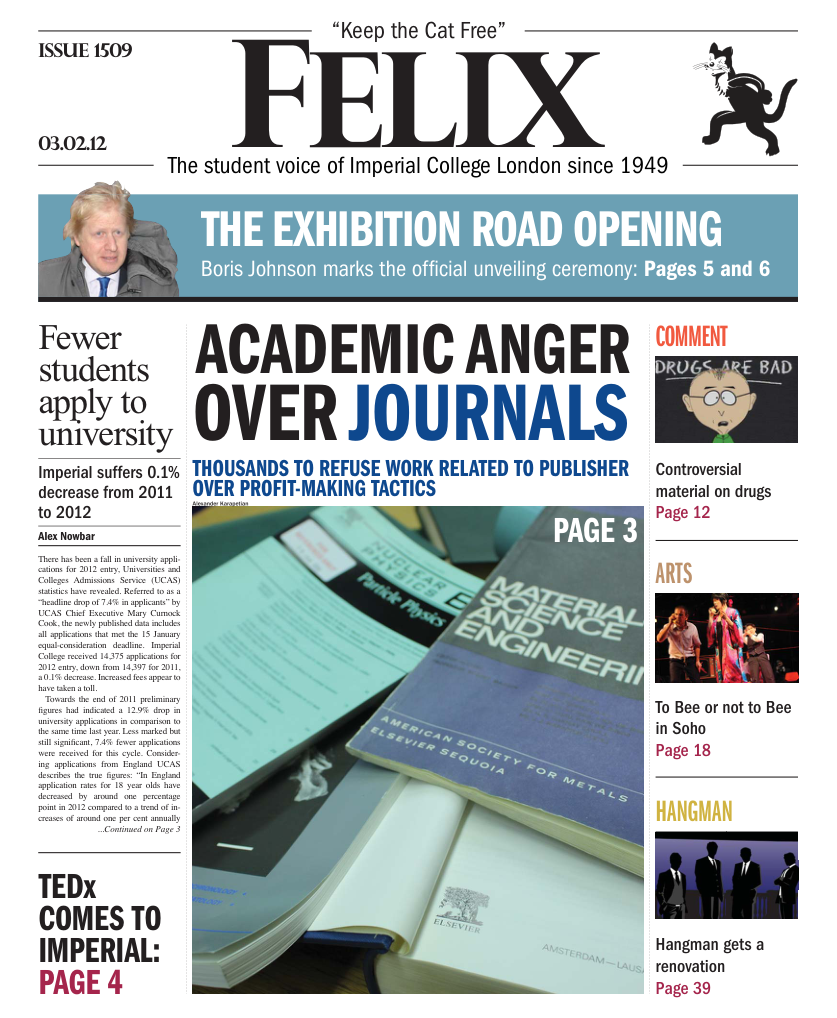Fewer students apply to university
Imperial suffers 0.1% decrease from 2011 to 2012
There has been a fall in university applications for 2012 entry, Universities and Colleges Admissions Service (UCAS) statistics have revealed. Referred to as a “headline drop of 7.4% in applicants” by UCAS Chief Executive Mary Curnock Cook, the newly published data includes all applications that met the 15 January equal-consideration deadline. Imperial College received 14,375 applications for 2012 entry, down from 14,397 for 2011, a 0.1% decrease. Increased fees appear to have taken a toll.
Towards the end of 2011 preliminary figures had indicated a 12.9% drop in university applications in comparison to the same time last year. Less marked but still significant, 7.4% fewer applications were received for this cycle. Considering applications from England UCAS describes the true figures: “In England application rates for 18-year-olds have decreased by around one percentage point in 2012 compared to a trend of increases of around one per cent annually since 2006”. Predictably in the current economic climate, there was a greater decrease in applications from the 21-24 age group than from school-leavers.
Unfortunately the number of applications still exceeds the number of places that are available in 2012. According to Cook’s statement “Applications are already 50,000 ahead of the number of acceptances in 2011.” The fact that last year UCAS received a further 116,000 applications between January and the close of the cycle is further cause for concern.
Pro-Rector (Education) Professor Julia Buckingham said of the decrease: “We will want to go beyond the statistics of this particular year to carefully monitor application trends as we go forward under the new system. One area for the whole sector to consider is whether universities can communicate their student finance packages even more widely in the future. Here at Imperial, for instance, we have a generous financial support package so that the costs of studying are not a barrier to students joining us, and we are working to ensure that message reaches prospective students as they start to consider their options post A-Level.”
Interestingly, subscription to arts degrees has been affected to a greater extent than the sciences. One could argue that this goes some way in explaining why applications to Imperial have not suffered much. Imperial’s invariable appeal to overseas students may also be a contributing factor as there was an increase in the number of applications from applicants outside the EU of 13.7% (although the number of EU applicants decreased). Students and staff alike might expect Imperial’s excellent reputation to have played a role in maintaining the application rate this year in comparison to other UK universities, an Imperial degree perhaps being considered worth the higher fees.








